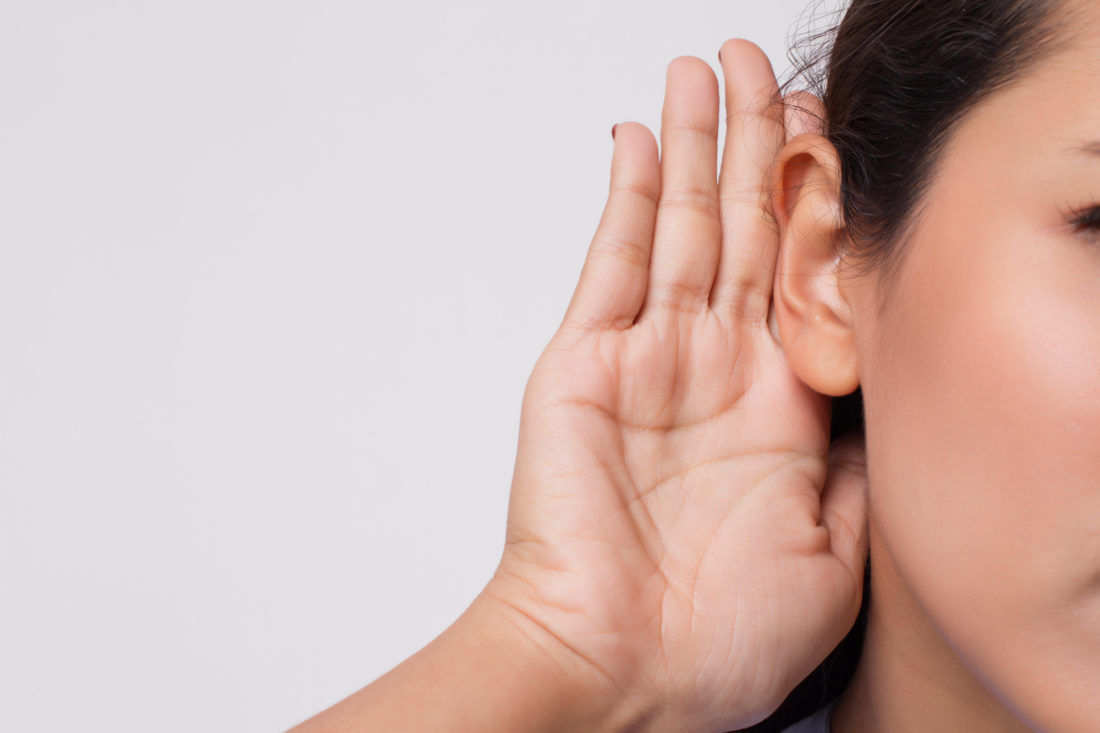Hearing Loss: 8 Ways to Keep Yourself From Developing It
 Would you believe it if we told you that over 1 billion young people are at risk of hearing loss as a result of noise in recreational settings?
Would you believe it if we told you that over 1 billion young people are at risk of hearing loss as a result of noise in recreational settings?
About 24% of adult Americans already have noise-induced hearing loss, something you can prevent from happening to you. These people may not have known how to prevent hearing loss, but you have a chance to.
Noise-induced hearing loss is caused by damage to the hair cells in the inner ears. Hair cells are responsible for converting the sounds you hear from acoustical energy to electrical signals that travel to the brain. Once these hair cells are damaged, it’s impossible for them to grow back, and hence cause permanent hearing loss. Although hearing aid had nominal success with permanent hearing loss, modern digital rechargeable hearing aids have grown in popularity in the past few years as they have become more powerful and easier to use.
Table of Contents
Signs Your Environment Is Too Loud
If you have to raise your voice while communicating with someone close by, then it’s too loud. The noise may also hurt your ears, and you may experience a buzzing or ringing noise, known as tinnitus. Sound travels in waves and is measured in decibels.
According to the hearing loss chart, the softest sound stands at zero decibels, a normal conversation at 65 decibels, and a rock concert at around 120 decibels.
The safe threshold that would prevent profound hearing loss stands at 80 decibels. Some everyday noises can be louder than you think, with traffic standing at 85 dB, a leaf blower at 90dB, sports events at 100 dB, and sirens at 120dB.
Loud noises reaching 120 decibels would cause progressive hearing loss, and prolonged noise beyond 120 decibels can cause permanent hearing loss. Exposure to moderate noise for an extended period can cause more damage than loud sounds at a shorter time.
How to Prevent Hearing Loss
We’re living in a world full of noise with honking vehicles, power mowers, and amplified music. This makes it important for you to safeguard your hearing.
You don’t just have to protect yourself from loud bursts of noise, but a constant noise in your environment that may cause progressive hearing loss. This post addresses how to prevent hearing loss with tips on how to avoid too much noise.
1. Know Your Sound Environment
Despite knowing that you need to avoid noises above 80 dB for an extended period, it’s impossible to tell the level of decibels just by listening.
For instance, you have probably never considered city traffic to be dangerous, but as it stands at 85 dB, it certainly is. To know whether the sounds and noises in your environment pose a risk to your hearing, you can use a hearing meter to determine what’s safe and what’s not.
One of the best things about living in the digital age is that there are tech solutions to almost anything. With a smartphone, you can install sound meter apps that’ll help you measure the level of noise surrounding you. When you know what you are facing, you’ll know how to prevent hearing loss.
2. Block Out Loud Noise
A majority of Americans suffer from noise-induced hearing loss because of loud equipment in their work environments.
Chainsaws, lawnmowers, and other equipment that are so loud that you need to shout while talking to someone can create a dangerous level of noise. Blocking out the noise is your best bet if you cannot abandon your work.
Earplugs are not only convenient but easy to obtain, and you can have them customized to your ears. Custom earplugs filter out conversations and reduce the harmful levels of sound at the same time. While custom earplugs may come off as expensive, they will be a worthy investment in the long run, especially if you need constant protection from loud noises.
You can also get ear muffs if earplugs are not suitable for you. This doesn’t necessarily mean the ones you wear during winter to keep you warm. Noise blocking earmuffs look similar to large headphones, but the shells are filled with foam and other sound-dampening materials that block out the noise.
3. Turn Down the Volume
A lot of people love to enjoy music, most of who listen to it through headphones and earbuds. The thing is, at a prolonged period of time, music can cause progressive hearing loss. You may want to consider the 60/60 rule where you listen to music through headphones without exceeding 60% volume for just 60 minutes per day.
Earbuds are considered more dangerous because they are inserted right next to the eardrum. If you must, use over-the-ear headphones instead and follow the rule.
Of course, loud music, even without headphones, still presents a risk of noise-induced hearing loss, so always keep the volume low enough that you can hold a conversation without having to shout. Use earplugs when you go to loud concerts to protect yourself from such loud noises.
After exposure to loud noise for a prolonged period, always give your ears some recovery time by getting away from the noise for a while. After a night of loud noise, your ears need about 16 hours of quiet time to recover.
4. Stop Using Cotton Buds
We’ve all used cotton buds at one point to clean our ears. What you may not know is that cotton swabs are not recommended for cleaning out ear wax. Wax is essential in the ears because it stops specks of dust and harmful particles from reaching the ear canal, so it’s normal to have it.
Ears happen to be self-cleaning organs, and if you keep inserting things inside the ear, you risk damaging the sensitive organs found inside, such as the eardrum. If you feel that you have excess wax that needs removal, you can use a damp towel and do it gently. You could also use aldosterone, or an ear wax solution that softens the wax and causes it to flow out.
5. Keep Your Ears Dry
Did you know that excess moisture is dangerous to your ears? It allows bacteria to enter inside, which may attack the ear canal.
Ear infections such as swimmer’s ear can pose a risk to your hearing ability. It’s vital for you to towel dry your ears after bathing, showering, or swimming. If you feel water inside the year, tilt your head and tug on the lobe to coax all the water out.
If you swim a lot, you can use swimmer’s earplugs to keep your ears dry at all times. They can be customized to your ears, and they are suitable for both adults and kids.
6. Manage Your Stress Levels
Stress and anxiety have a link to temporary and permanent hearing loss.
When you have high levels of stress, your body goes into a flight or fight mode and fills your body with adrenaline. This places pressure on the nerves, body heat, and blood flow, which travels all the way to your ears and causes tinnitus symptoms.
7. Go for Check-ups
When was the last time you had an ear check-up?
You see, sudden hearing loss is not as prevalent as gradual hearing loss, so check-ups will help you determine if you are at risk of noise-induced hearing loss. Untreated hearing loss contributes to other health issues such as depression, heart disease, and detraction from quality life.
8. Move Move Move
Exercise is good for your entire body, including your ears. Cardio exercises such as running, cycling, and walking usually pump blood to all parts of the body, including the ears. This helps them stay healthy and working at their full potential.
There You Have It!
If you have been wondering how to prevent hearing loss, now you have all the info! As long as you understand the levels of noise in your regular environment, preventing hearing loss can be easier.
Do yourself a favor and get a check-up soon, then download that noise app and keep yourself safe.
To read such insightful content regularly, keep visiting our site.









